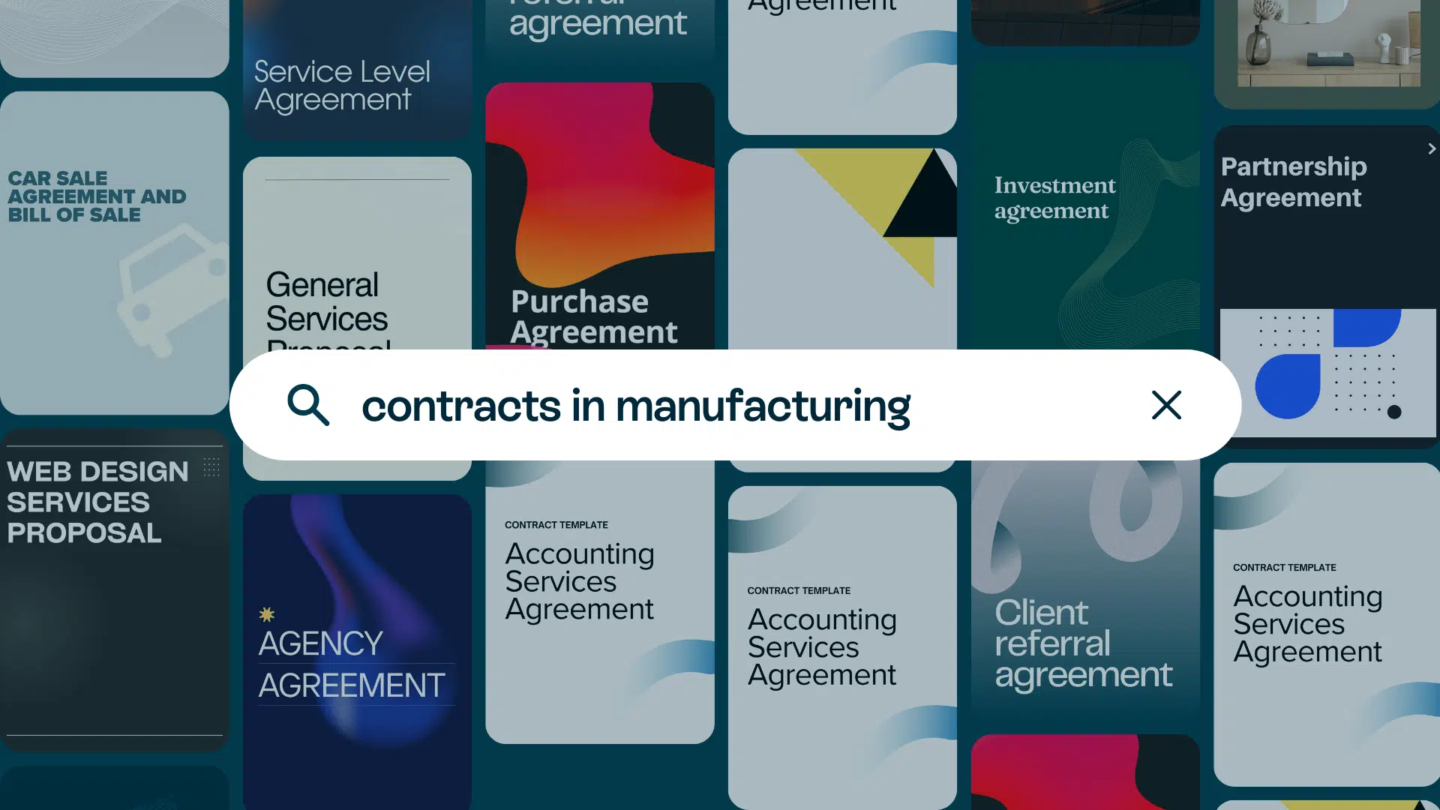Unilateral contracts may sound like a complicated concept, but fear not! We’re here to break it down for you in simple terms. Imagine this: you’re standing in front of a shiny vending machine, craving a bag of your favorite potato chips. You insert a coin, make your selection, and voila! The chips are dispensed. But have you ever stopped to think about the legal aspects of this seemingly mundane transaction? Well, my friend, that’s where unilateral contracts come into play.
What is a unilateral contract?
At its core, a unilateral contract is an agreement where one party makes a promise in exchange for the performance of a specific action by the other party. In our vending machine example, the act of inserting the coin and making a selection is the required action for the promise of receiving the desired snack. Simple, right?
Read also: Save time with these free business template from Oneflow

Definition and key features
Let’s dive a little deeper into the nitty-gritty details. A unilateral contract is a legally binding agreement in which one party binds themselves to perform upon the occurrence of a specific act or event. In this type of contract, the party making the promise is known as the offeror, while the party performing the requested action is referred to as the offeree. In our vending machine scenario, you’re the offeree while the vending machine owner is the offeror.
One key feature of unilateral contracts is that they require the offeree to perform the requested action before the offeror is obligated to fulfill their promise. This means that if you don’t insert that coin and make a selection, the vending machine owner has no obligation to dispense your beloved bag of chips. So, make sure you follow through!
Unilateral vs. bilateral contracts
Now, you might be wondering, what sets unilateral contracts apart from their bilateral counterparts? Well, in a bilateral contract, both parties make promises to each other. Picture yourself at a lemonade stand, agreeing to pay a certain amount in exchange for a refreshing beverage. Both you and the lemonade stand owner are bound to provide something: money in your case, and lemonade in theirs. In a unilateral contract, however, only one party makes a promise while the other party performs an action.
The legal framework for unilateral contracts
Now that we’ve laid the groundwork for understanding unilateral contracts, let’s explore their legal framework in more detail.
Essential elements of a unilateral contract
While specific elements may vary depending on jurisdiction, there are some essential components to keep in mind when it comes to unilateral contracts. First and foremost, there must be a clear offer that outlines the action required for the promised performance. In our vending machine example, the offer is implied: insert a coin and make a selection to receive your desired snack.
Additionally, the offeree must have knowledge of the offer and the required action. Transparency is key to ensure both parties are aware of their obligations. Imagine if you inserted the coin without knowing it was a requirement for receiving the chips — that would be quite unfair!
Lastly, the offeror must demonstrate an intention to be bound by the offeree’s performance. In other words, it should be clear that the offeror expects the offeree to fulfill their end of the bargain.
Legal enforceability of unilateral contracts
Unilateral contracts, when properly formed, are generally enforceable under the law. Courts typically recognize the binding nature of these agreements and uphold the obligations of both parties. So, if you perform the required action in our vending machine scenario, the vending machine owner is legally obliged to dispense those delightful chips into your waiting hands.
However, it’s worth noting that in some cases, the courts may require a reasonable effort from the offeree. If fulfilling the requested action is impossible or impractical for reasons beyond your control, such as a malfunctioning vending machine, the court may deem the contract unenforceable.
Read also: What are digital contracts?

Real-life examples of unilateral contracts
Unilateral contracts are more common than you might think. Let’s explore a couple of real-life examples that showcase the versatile nature of these agreements.
Insurance policies as unilateral contracts
Have you ever purchased an insurance policy? Well, congratulations, you’ve entered into a unilateral contract! In this scenario, you, as the policyholder, pay your premiums (the required action) with the expectation that the insurance company will provide coverage if an insured event occurs. The company is obligated to fulfill its promise once the conditions specified in the policy are met.
Reward offers as unilateral contracts
Remember those “Missing Pet” posters you often see around town? They typically offer a reward for anyone who finds and returns the missing furry friend. That reward offer is an example of a unilateral contract. The person making the offer expects someone to perform the requested action (finding and returning the pet) in exchange for the promised reward.
Read also: How to convert signature images to text, then save it as an image

Potential challenges with unilateral contracts
While unilateral contracts can be beneficial in many situations, they are not without their challenges. Let’s take a closer look at some potential hurdles you may encounter.
Issues of acceptance and performance
Unlike bilateral contracts, where acceptance is typically required through a signed document or verbal agreement, unilateral contracts rely on performance as a form of acceptance. This can sometimes lead to ambiguity and disputes regarding whether the offeree has indeed fulfilled the necessary action. It’s essential for both parties to have a clear understanding of what performance constitutes acceptance.
Potential for disputes and litigation
As with any legal matter, disputes can arise, and unilateral contracts are no exception. The subjective nature of performance acceptance may lead to disagreements, particularly if there are differing interpretations of the offeree’s actions. In such cases, parties may be compelled to seek legal resolution, which can be time-consuming and costly.
Read also: How Oneflow can help HR teams save time and money

How to draft a unilateral contract
If you’re considering entering into a unilateral contract, it’s important to understand how to draft one properly to protect your interests. Here are some key considerations and tips to keep in mind:
Key considerations and tips
1. Clearly define the promised performance and the required action for acceptance to avoid confusion or dispute.
2. Make sure both parties have a complete understanding of their rights and obligations by clearly outlining them in writing.
3. Consider including provisions for situations where performance is prevented or delayed due to unforeseen circumstances beyond the offeree’s control.
4. Seek legal advice when drafting complex or high-stakes unilateral contracts to ensure all necessary elements are included and that the agreement will be enforceable in your jurisdiction.
Seeking legal advice
While this playful and informative article has provided you with a solid understanding of unilateral contracts, it’s always wise to consult with a legal professional when dealing with any legal matters. They can offer specialized guidance tailored to your specific circumstances and jurisdiction, ensuring your unilateral contract is rock-solid and legally binding.
So, the next time you find yourself inserting a coin into a vending machine or contemplating a reward offer, remember that behind these everyday actions lurks the fascinating world of unilateral contracts. Stay informed, be aware of your rights and obligations, and enjoy those crispy snacks or that heartwarming reunion with your beloved pet!







